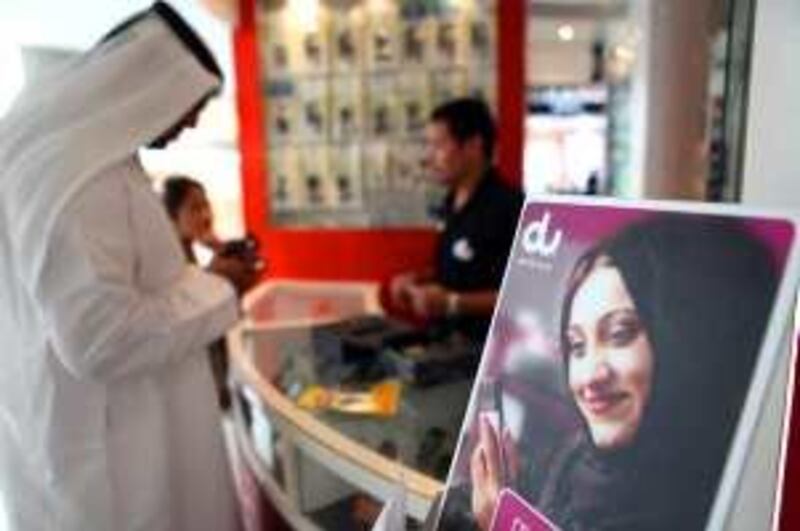Mohammed Betawi is not your typical Palestinian businessman. While most West Bank exporters are forced each day to navigate the maze of restrictions imposed by Israel's occupation, Mr Betawi's software development company, based in Ramallah, can avoid obstacles because of the medium in which it operates.
His company, Al Andalus Software Development (ASD), is just one of several ambitious Palestinian small and medium-sized enterprises (SMEs) in the knowledge-based industry that are penetrating regional markets. Mr Betawi's efforts are made easier because internet and communications technology is a sector that Israel's blockade struggles to affect. "Palestinian SMEs can do business over the internet cloud," says Laith Kassis, the chief executive of the Palestine Information and Communications Technology Incubator.
"It doesn't require the shipping of goods back to back, from one truck to the other, across the checkpoints of the West Bank and Gaza." ASD has set up an office in Dubai to cater for clients using its software products and solutions. Mr Betawi says the firm's Palestinian origins are not a problem - quite the reverse. "There's no limitations on where you are from. It's all about what kind of services you deliver," he says.
ASD now has 10 clients in the UAE, including the Grand Store retail chain, which uses its point-of-sales system, while its enterprise resource planning solution, SoftMix, is used by a number of ready-mix cement companies in Dubai. Other technology companies are servicing the Gulf market from the Palestinian Territories. The Gaza-based Tatweer Business Services is selling ringtones, recorded in a Gaza studio, to the Dubai telecoms group du, while Altariq Systems, also in Gaza, is providing software to the Saudi market.
Altariq started business in 2003, and since 2006 has sold a variety of business software and mobile phone applications to Gulf markets, including Saudi Arabia, Oman and the UAE. "We've built up trust through our quality and commitment," says Tareq Eslim, the chief executive of Altariq. "Now we're selling cartoons to TV companies in Saudi Arabia." Outsourcing is another key growth area. Mr Eslim has been exploring the US market in a bid to outsource services to Gaza where, he points out, labour costs are low but skills and commitment are high.
The untapped potential of Palestinian technology SMEs has sparked the interest of global financial institutions, which are looking for significant growth potential amid robust regional demand for content. In December, the European Investment Bank announced a ?5 million (Dh25.05m) anchor investment in the new Middle East Venture Capital Fund, which will focus on early-stage, export-orientated technology enterprises with an emphasis on software development and web-based companies.
A fully capitalised fund could create about 12 investment opportunities for existing businesses seeking to expand, and additional opportunities for the establishment of new enterprises. Mr Kassis estimates the current contribution of the internet technology sector in the Palestinian Territories at 5 per cent of GDP, but expects this to expand rapidly. "We have a local market size of US$300m (Dh1.1 billion) but we expect it to grow this year by 25 per cent," he says.
This growth will gain traction through a new private equity fund focused on Palestinian SMEs. It was launched on January 28 by the Palestine Investment Fund, a publicly owned fund, and the private equity group Abraaj Capital, which is based in the UAE. The fund was initially seeded with $15m and will invest in SMEs in Palestine across a range of sectors. There is likely to be a focus on sectors such as information and communications technology, says Dr Mohammed Mustafa, the chairman and chief executive of the Palestine Investment Fund.
"This is partly because there's a lot of potential in this sector, because of our highly educated workforce and strong labour skills set," Dr Mustafa says. "And a key advantage is that you don't face physical boundaries. You have the internet, so you are easily able to communicate." @Email:business@thenational.ae






